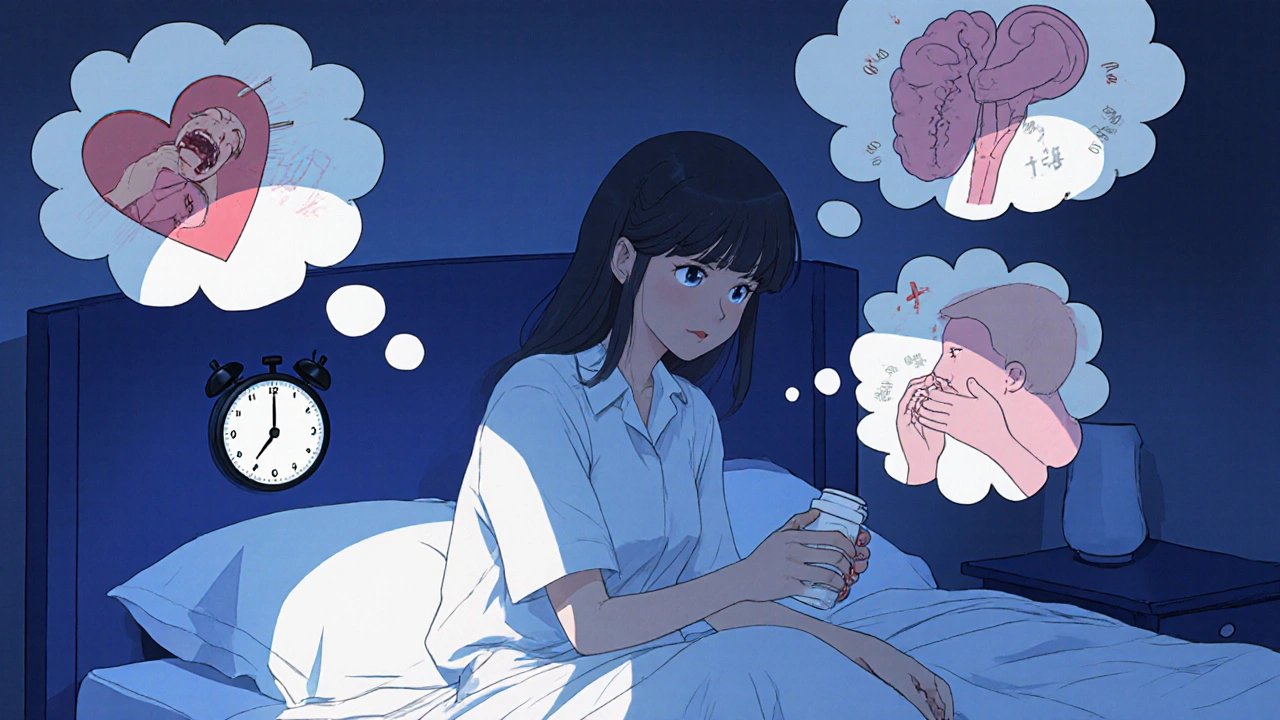CBT for Medication Anxiety: How Cognitive Behavioral Therapy Helps
When you feel panicked just thinking about taking your pill, you’re not alone. Cognitive Behavioral Therapy, a structured, goal-oriented form of talk therapy that helps people change unhelpful thought patterns and behaviors. Also known as CBT, it’s one of the most effective tools for managing medication anxiety—whether you’re scared of side effects, distrust prescriptions, or fear becoming dependent. This isn’t about ignoring your worries. It’s about learning how to respond to them so they don’t control your health choices.
Medication anxiety often shows up as racing thoughts before a dose, skipping pills to avoid discomfort, or avoiding doctors altogether. These reactions are real, and they’re treatable. CBT works by breaking down the fear into smaller parts: the thought ("This drug will wreck my liver"), the feeling (heart pounding, nausea), and the behavior (hiding pills, lying to your doctor). Then it gives you tools to challenge each one. For example, if you believe all antibiotics cause severe diarrhea, CBT helps you test that belief with facts—not just fear. You might track your own reactions, compare them to clinical data, or talk through worst-case scenarios with a therapist until they lose their power.
What makes CBT different from just "thinking positive"? It’s action-based. You don’t just talk about your fear—you practice facing it in small, safe steps. Maybe you start by holding the pill bottle for 30 seconds without opening it. Then you read the label out loud. Then you take one pill with water, sitting quietly for 10 minutes afterward. Each step builds confidence. And because CBT is tailored to your specific triggers, it works whether your anxiety is about blood pressure meds, antidepressants, or even vitamins you’ve been told to take daily. It’s not magic. But for people stuck in a loop of fear and avoidance, it’s often the only thing that breaks the cycle.
Many of the posts here focus on medication comparisons, side effects, and safe use—but they all share a hidden thread: people are afraid. They worry about interactions, long-term damage, or losing control. CBT doesn’t change the drugs. It changes how you relate to them. And when you’re less anxious, you’re more likely to take your meds correctly, notice real side effects early, and talk openly with your provider. That’s not just mental health—it’s better physical health too.
Below, you’ll find real guides on drugs people commonly fear—anticoagulants, antidepressants, pain meds, and more. Each one gives you facts, alternatives, and safety tips. But knowing the facts isn’t enough if your body still reacts like you’re in danger. That’s where CBT steps in. It’s not just therapy. It’s the missing piece between knowing what to do and actually doing it.

Psychological Strategies to Manage Anxiety About Medication Side Effects
Learn proven psychological strategies to manage anxiety about medication side effects, reduce fear, and improve adherence. Discover how CBT, mindfulness, and symptom tracking can help you stick with your treatment.
